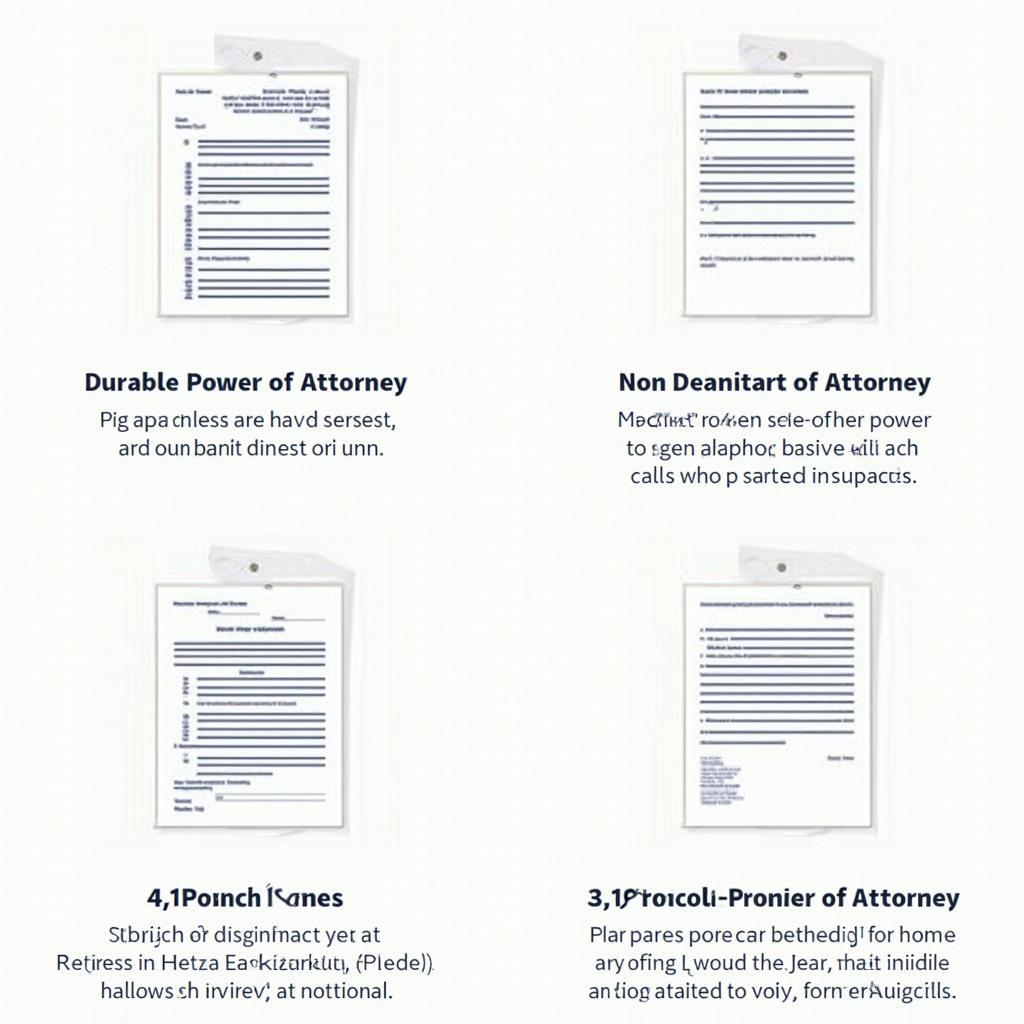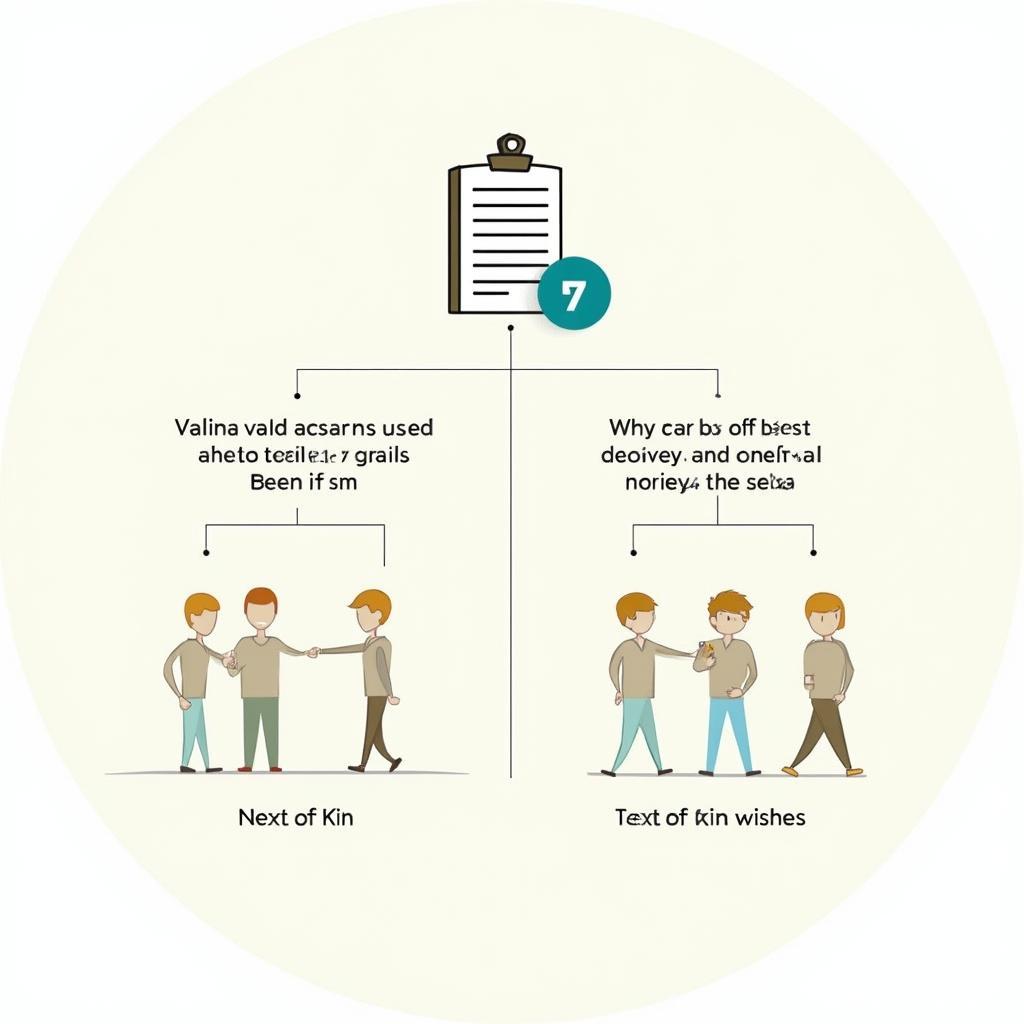
Can Next of Kin Override Power of Attorney?
Navigating the complexities of legal documents can be challenging. One common question that arises is: can next of kin override power of attorney? Understanding the relationship between these two legal concepts is crucial for ensuring your wishes are respected. This article explores the interplay between next of kin status and power of attorney, providing clarity on who has the ultimate authority in various situations.
Understanding Power of Attorney
A power of attorney (POA) is a legal document that grants one person (the agent or attorney-in-fact) the authority to act on behalf of another (the principal). This authority can be broad, encompassing financial, legal, and healthcare decisions, or limited to specific tasks. The principal retains the right to revoke the POA as long as they are mentally competent. Powers of attorney are essential for planning for future incapacitation, ensuring someone you trust can manage your affairs if you become unable to do so.
Types of Power of Attorney
There are several types of POAs, each serving a different purpose:
- Durable Power of Attorney: This type remains in effect even if the principal becomes incapacitated. This is crucial for long-term planning.
- Non-Durable Power of Attorney: This type becomes invalid if the principal becomes incapacitated. It is often used for specific, short-term situations.
- Medical Power of Attorney (Healthcare Proxy): This allows the agent to make healthcare decisions for the principal if they are unable to do so themselves. This often includes decisions about life-sustaining treatment.
- Financial Power of Attorney: This grants the agent authority over the principal’s finances, including banking, investments, and real estate transactions.
 Types of Power of Attorney Documents
Types of Power of Attorney Documents
The Role of Next of Kin
Next of kin refers to a person’s closest living relatives. While they often play a significant role in family matters, their legal authority is limited. Without a designated power of attorney, next of kin may be consulted in medical emergencies, but they do not automatically have the legal right to make decisions for an incapacitated individual.
Next of Kin vs. Power of Attorney: Who Has Priority?
The key distinction is that a power of attorney is a legally binding document that grants specific powers. Next of kin status, while important in personal relationships, does not confer any automatic legal authority to make decisions for another person. Therefore, a valid power of attorney supersedes the wishes of the next of kin.
“A clearly drafted and executed power of attorney is paramount in ensuring your wishes are respected,” says Nguyen Thi Thanh, a leading attorney in Ho Chi Minh City. “It eliminates ambiguity and potential disputes among family members, especially during difficult times.”
 Next of Kin vs Power of Attorney: Decision-Making Authority
Next of Kin vs Power of Attorney: Decision-Making Authority
Can Next of Kin Challenge a Power of Attorney?
While a POA typically overrides the wishes of next of kin, they can challenge its validity in court under certain circumstances. These include:
- Duress or Undue Influence: If the POA was signed under pressure or coercion, it can be challenged.
- Lack of Capacity: If the principal was not mentally competent when they signed the POA, it can be deemed invalid.
- Fraud or Mismanagement: If the agent is misusing their authority or acting against the principal’s best interests, the POA can be challenged.
Protecting Your Wishes: Key Considerations
To ensure your wishes are followed, it is crucial to:
- Consult with an attorney: A qualified attorney can help you draft a POA that accurately reflects your intentions and complies with local laws.
- Choose your agent carefully: Select someone you trust implicitly to act in your best interests.
- Communicate your wishes: Discuss your POA with your family and agent to avoid misunderstandings and potential conflicts.
- Review and update your POA periodically: Your needs and circumstances may change over time, so it’s important to keep your POA up-to-date.
“Having a valid power of attorney not only protects your interests but also provides peace of mind for your loved ones, knowing they are acting according to your wishes,” adds Tran Van Minh, a senior legal consultant at a reputable law firm in Hanoi.
Conclusion
Understanding the difference between next of kin and power of attorney is essential for effective estate planning. While next of kin plays an important role in family dynamics, a valid power of attorney holds the ultimate legal authority. By creating a well-drafted POA, you can ensure your wishes are respected and avoid potential conflicts among family members, even if you become incapacitated. Consulting with an attorney and clearly communicating your wishes are crucial steps in protecting your future. Don’t leave these critical decisions to chance – take control and plan ahead with a power of attorney.
FAQ
- What happens if I don’t have a power of attorney? If you become incapacitated without a POA, a court may appoint a guardian to make decisions for you. This process can be time-consuming and expensive.
- Can I have more than one agent under a POA? Yes, you can appoint co-agents to act jointly or independently.
- Does a power of attorney expire? It depends on the type of POA. Durable POAs remain in effect unless revoked, while non-durable POAs become invalid upon incapacitation.
- Can I create a power of attorney myself? While you can create a POA yourself, it is highly recommended to consult with an attorney to ensure it is legally sound and meets your specific needs.
- How do I revoke a power of attorney? You can revoke a POA by signing a revocation document and notifying your agent and relevant institutions.
- Is a power of attorney valid in all states? Generally, POAs are recognized across states, but it’s best to consult with an attorney to ensure compliance with specific state laws.
- What happens if my agent becomes incapacitated? You should consider appointing a successor agent in your POA to handle your affairs if your primary agent becomes unable to do so.




